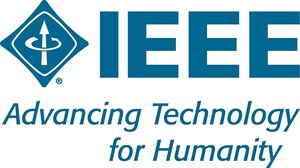IEEE Members Globally Work on the Development of Intelligent, Vehicular Transport Systems for Smarter, Safer Travel
PISCATAWAY, N.J., Aug. 30 /PRNewswire/ -- IEEE, the world's largest technical professional association, and its members are advancing the way technology is deployed in mass transit and road traffic computing and communications systems. By incorporating new security, wireless, sensor, robotics and other technologies into intelligent transport systems, IEEE is enabling a smarter, safer consumer travel experience.
IEEE members globally are employing wireless communications systems and robot simulations to design vehicular and roadway networks that analyze traffic situations to aid in human-roadway response. By leveraging active traffic management and predictive modeling, computational intelligence and mobility management, among other engineering practices, IEEE is making it possible for cars to communicate with roadway devices to better detect hazards for accident reduction, as well as trigger emergency response, if necessary.
IEEE members are advancing a number of transport technology solutions which will benefit humanity including:
- Developing "electric highways" with sufficient charging stations to power electric vehicles for long drives;
- Traffic-adaptive cruise control based on robotic simulator research;
- Exploring mathematical methods to solve a variety of highway safety and vehicle control challenges for driver assistance systems;
- Wireless sensor-based early warning systems for vehicular collision avoidance systems;
- Improving real-time train dispatching through broadband wireless communication;
- Advancements of linear-motor powered transport systems using magnetic suspension and propulsion, or "maglev" technology for more sustainable mass transportation;
- Developing controls and processes to mitigate the exposure of intelligent transportation systems to malicious attacks; and,
- Basic approaches in artificial transportation systems.
"We continue to leverage global techniques in engineering, computing and technology to advance integrated communications systems for automotive, railway and aircraft guidance," said Professor Azim Eskandarian, an IEEE member who is on the Board of Governors of the IEEE Intelligent Transportation Systems Society. "From developing artificial neural networks for network modeling, driver behavior modeling and automotive safety, to improving vehicular situational awareness, engineers are working to progress vehicle collision avoidance methods, advance traffic warning systems and improve driver assistance."
IEEE members from around the world are focused on innovative road traffic and transportation control initiatives, including:
- Professor Xuming Fang, Ph.D., member of the IEEE Vehicular Technology Society, IEEE Information Theory Society and IEEE Communications Society, is based in China and specializes in the studies of wireless and mobile communication networks, computer networks, and high-speed railway broadband wireless communications. Professor Fang is leading research to improve high-speed railway wireless communication in China.
- Professor Azim Eskandarian, D.Sc., an IEEE member based in the U.S., is a professor of Engineering and Applied Science at George Washington University, director of the Center for Intelligent Systems Research (CISR) and coordinator of the George Washington University School of Engineering and Applied Sciences (SEAS) Transportation Safety and Security Program. His research efforts are divided into four separate laboratories, including two complete passenger vehicle and truck driving simulator labs to address the problem of drowsy driving.
- Christoph Stiller, Ph.D., an IEEE Senior Member based in Germany, and vice president of Member Activities of the IEEE Intelligent Transportation Systems Society. His interests span cognition for mobile systems, computer vision and real-time applications in intelligent transportation systems to answer the growing world population's demand for autonomous mobility.
- Richard Thornton, IEEE Life Fellow based in the U.S., has worked on "maglev" and linear motor development since 1968, including work on high-speed electrodynamic and electromagnetic systems for sustainable and faster alternatives to conventional steel railways.
Working to advance transportation systems globally, IEEE is hosting a number of upcoming events:
- 2010 13th International IEEE Conference on Intelligent Transportation Systems (ITSC 10) will be held 19-22 September 2010, in Madeira Island, Portugal.
- 2010 72nd IEEE Vehicular Technology Conference (VTC2010) will be held 6–9 September 2010, in Ottawa, Canada.
For more information on IEEE, or to speak with a technology expert on intelligent, vehicular transport systems, please contact: [email protected].
About IEEE
IEEE, the world's largest technical professional association, is dedicated to advancing technology for the benefit of humanity. Through its highly cited publications, conferences, technology standards, and professional and educational activities, IEEE is the trusted voice on a wide variety of areas ranging from aerospace systems, computers and telecommunications to biomedical engineering, electric power and consumer electronics. Learn more at http://www.ieee.org.
SOURCE IEEE
WANT YOUR COMPANY'S NEWS FEATURED ON PRNEWSWIRE.COM?
Newsrooms &
Influencers
Digital Media
Outlets
Journalists
Opted In






Share this article